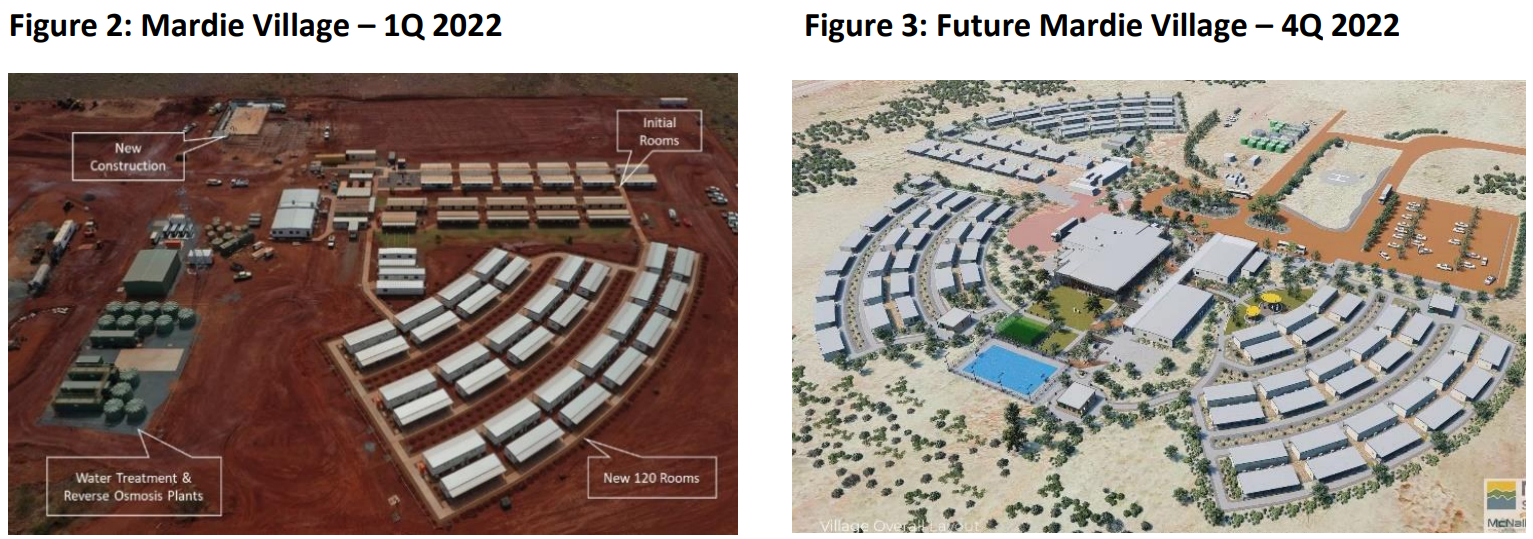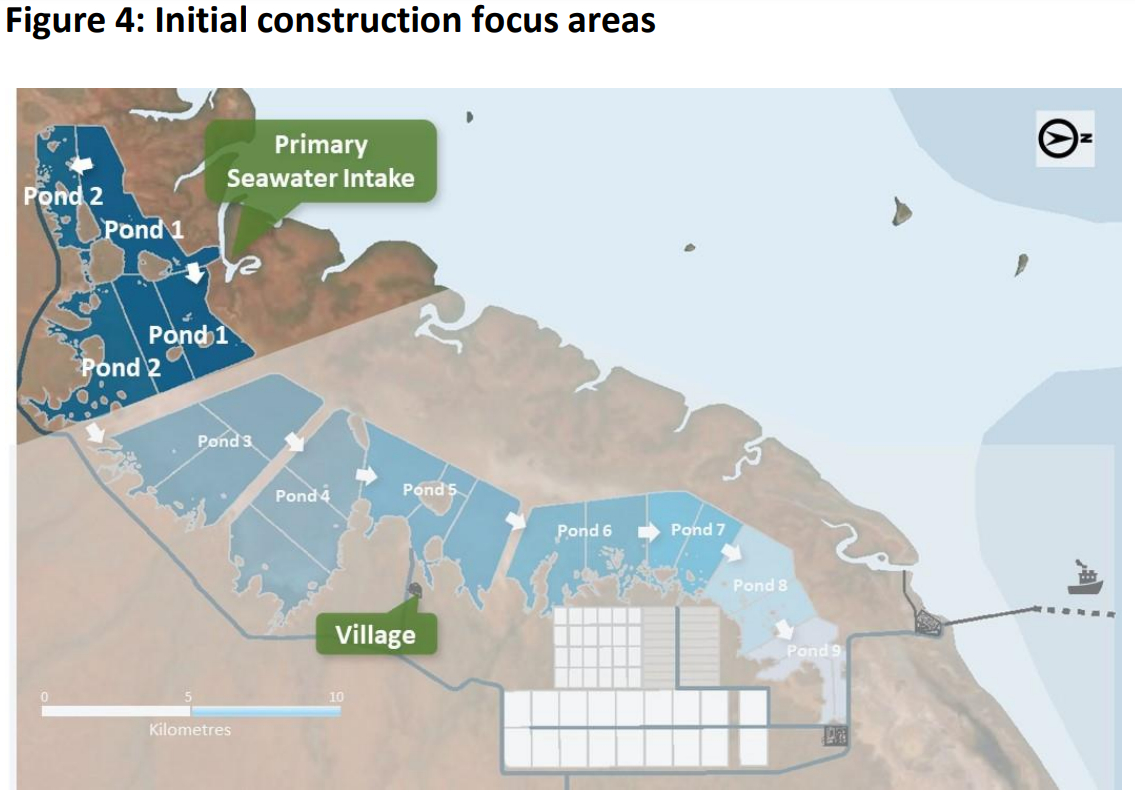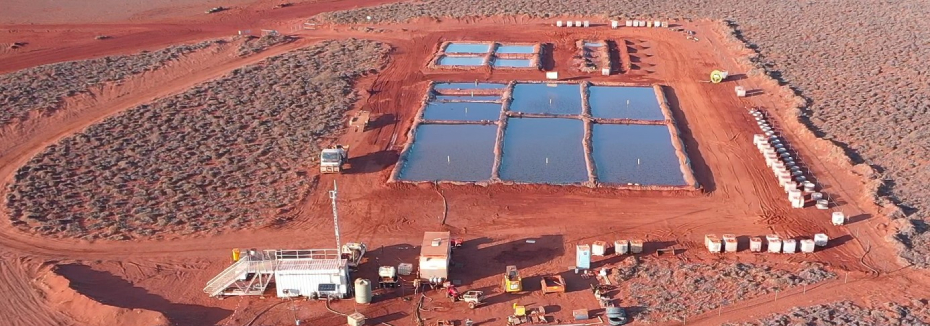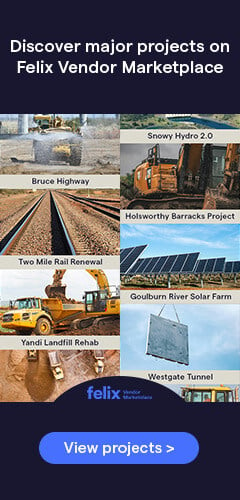With all secondary approvals secured, BCI Minerals Limited has commenced main construction activities on its wholly owned Mardie Salt & Potash Project on the coast of Western Australia’s Pilbara region.
Acquired secondary approvals for project construction include a Mining Proposal approved by the Department of Mines, Industry, Regulation and Safety (DMIRS); Part V Works Approval from the Department of Water and Environmental Regulation (DWER); and all necessary consents under Section 18 of the Aboriginal Heritage Act 1972 from the Minister for Aboriginal Affairs.
“This is a historic milestone for BCI and the culmination of four years’ work by our dedicated team.
“We aim to complete construction of Pond 1 and fill it with seawater within six months which will represent the commencement of production and keep us on track to achieve first salt sales in late 2024,” BCI Minerals Managing Director Alwyn Vorster said.
 Source: BCI Minerals Limited
Source: BCI Minerals Limited
With works to ramp up over the next six weeks, the recently expanded 200-bed Mardie Village is expected to be at full capacity. McNally Group is anticipated to double the capacity to a 400-bed facility within the next six months.
By late 2022, Mardie Village is projected to have periods of 100 per cent occupancy with the McConnell Dowell, WBHO Infrastructure and Ertech teams working on site.
McConnell Dowell will be delivering the Mardie port infrastructure while WBHO Infrastructure undertakes site earthworks and Ertech will handle the installation and commissioning of the seawater pump.
 Source: BCI Minerals Limited
Source: BCI Minerals Limited
At its initial stage, the main construction will deliver the seawater intake station and Pond 0 followed by Pond 1, Pond 2 and the Mardie Village works. A roads package is also expected to commence works in March.
Both Pond 1 and the primary seawater intake station are due to be completed in the third quarter of this year, with the filling up of Pond 1 estimated to take about three weeks. Pond 2 completion and filling will follow suit and it will use gravity to drive the inflow of seawater.
It is estimated that about 40 gigalitres of seawater is pumped into Pond 1 and gravity fed into Pond 2 by the fourth quarter of 2022, with the two ponds having a combined area of 24 square kilometres.
Ponds 3 to 9 are set to be sequentially filled starting in the fourth quarter of this year and all ponds are expected to be full by the fourth quarter of 2023.
BCI Minerals is projecting the first salt harvest and sales in late 2024.
“Mardie will ultimately include a 100km2 evaporation pond and crystalliser system, two processing plants and a new export facility which will produce 5.35Mtpa of salt and 140ktpa of sulphate of potash fertiliser, driven sustainably by inexhaustible seawater and 99% natural sun and wind energy,” Mr Vorster said.
The Mardie Salt & Potash Project is anticipated a peak workforce of 490 personnel during construction and will support up to 220 jobs once operational.
Source: BCI Minerals Limited (1, 2); Australian Mining; World Fertilizer Magazine

Related Articles

MACA secures contract for works at BHP's Pilbara iron ore operations
MACA Limited has secured a contract to provide crushing and screening services for BHP Billiton at the Mining Area C operations in Western Australia’s Pilbara region.

Macmahon wins civil and earthworks contract for Coburn mine project
Strandline Resources is taking another step towards the development of the Coburn mineral sands project in Western Australia with the appointment of Macmahon Holdings as lead contractor to deliver site-wide civil and bulk earthworks.

WA's Ocean Reef Marina project to support 900 jobs during construction
A new major milestone has been reached on the Ocean Reef Marina development in Western Australia, with the environmental approval granted to the marine section of the project.
Get the latest project news
- updates on Australia's pipeline of state and federal projects
- fresh contract awards from major contractors and builders
If you're looking to contact us about other matters, please contact us.



